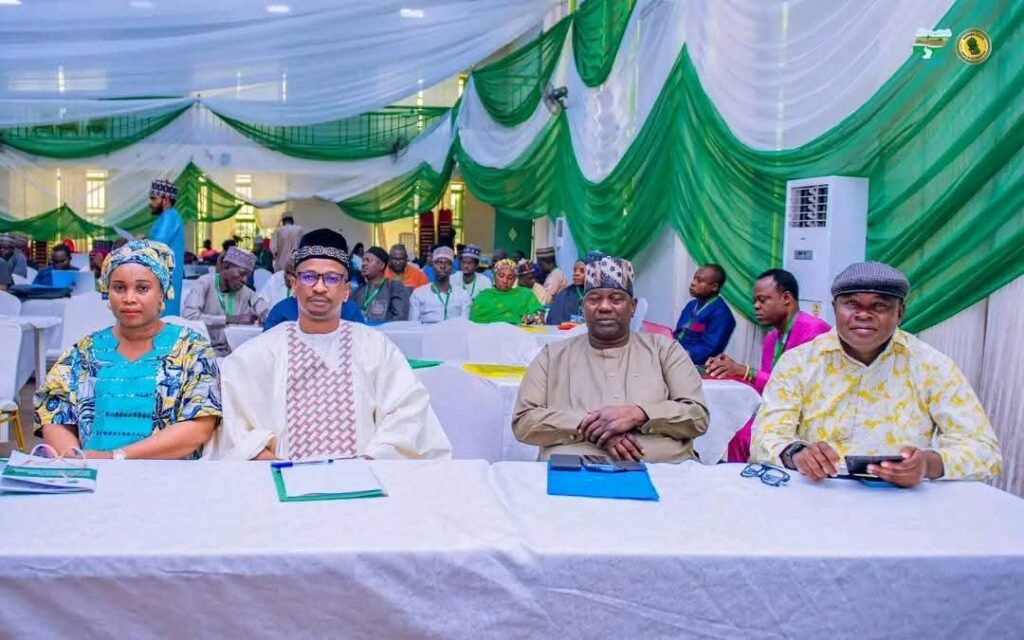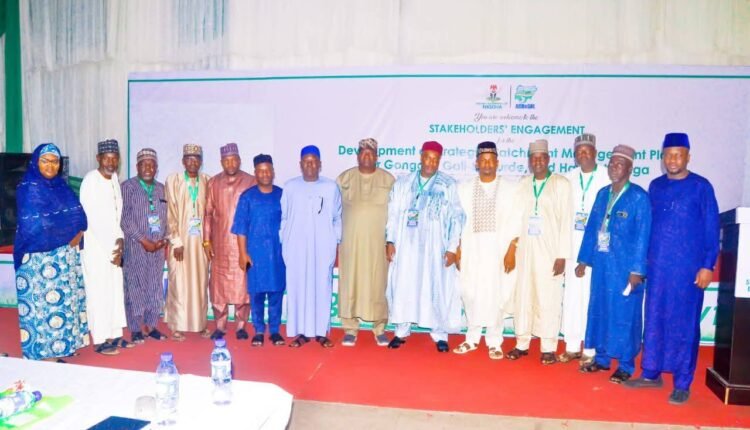Yobe Delegation Makes intense Input at Stakeholders’ Engagement on Strategic Catchment Plans in Gombe
Yobe Delegation Makes intense Input at Stakeholders’ Engagement on Strategic Catchment Plans in Gombe
By Yusuf Bukar Biriri
The ongoing stakeholders’ engagement for the development of the remaining eleven (11) Strategic Catchment Management Plans under the Agro-Climatic Resilience in Semi-Arid Landscapes (ACReSAL) Project entered its third day in Gombe on Thursday, with Yobe State participants playing a significant role in shaping the discussions.

In a statement made available to newsmen by the project communication officer Ibrahim Baba Saleh said the Yobe delegation, led by the State Project Coordinator, Shehu Alhaji Mohammed, made strong contributions during deliberations on the Hawul-Kilunge catchment, which extends into Gujba and Gulani Local Government Areas of Yobe State.
The session was designed to harvest insights, knowledge and practical solutions from stakeholders and experts who are familiar with the natural resources, agricultural potentials, water bodies, biodiversity, socio-economic activities, as well as the threats and challenges facing the catchments.
The goal is to co-create a shared vision by concern states and sustainable framework for the holistic development and protection of these ecological zones.
Read Also: Army trains personnel on leadership, warns against substance…
Stakeholders drawn from seven states — Adamawa, Bauchi, Borno, Gombe, Taraba, Plateau, and Yobe — are participating in the week-long technical engagement, which focuses on the Gongola, Gaji-Lamurde, and Hawul-Kilunge catchments.
The meeting is being attended by the ACReSAL National Project Coordinator, Mr. Abdulhamid Umar, State Project Coordinators from the participating states, technical experts from the ACReSAL Federal team, representatives of academia, Federal, State and Local Government Ministries, Departments and Agencies (MDAs), traditional leaders, focal NGOs, and other development partners.
The outcome of the engagement is expected to feed into the final drafts of the Strategic Catchment Management Plans, which will serve as guiding frameworks for integrated natural resource management, climate change adaptation, and sustainable development across the affected areas.

